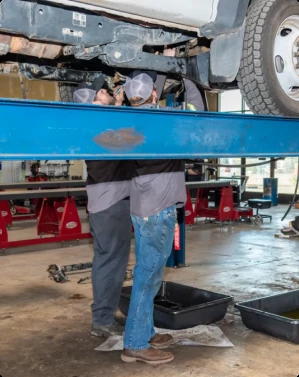What Is Coolant, and Why Does It Matter?
Engine coolant (also called radiator fluid or antifreeze) is responsible for regulating your engine’s temperature. It prevents overheating in summer, freezing in winter, and protects internal components from corrosion.
If you’ve ever wondered, “Is radiator fluid the same as coolant?”—yes, they are essentially the same. The terms are used interchangeably depending on the context.
Over time, coolant degrades, loses effectiveness, and can become contaminated. That’s why a periodic coolant flush or coolant replacement is necessary.
Can You Change Coolant Yourself?
Yes, you can. Performing a DIY cooling system flush is possible if you’re comfortable with basic car maintenance.
Here’s a simplified coolant flush procedure:
- Let the engine cool completely
- Drain the old coolant via the radiator or drain plug
- Flush the system with water or a flush solution
- Close the system and refill with the proper mix of coolant and distilled water
- Bleed air from the system by running the engine with the radiator cap off (if safe to do so)
If you’re asking, “Can you replace coolant yourself?”, the answer is yes—but it’s important to follow the correct procedure and use the right type of coolant for your car.
How to Replace Coolant in Your Car
When learning how to change coolant in a car, always:
- Use coolant compatible with your make/model
- Dispose of old antifreeze properly (it’s toxic)
- Check for leaks before and after the procedure
Search terms like “how to replace engine coolant,” “how to change antifreeze in car,” or “replacing antifreeze in car” all point to the same general process. Always check your owner’s manual for specific instructions.
Fast & Reliable Equipment Repairs
Keep your equipment in top condition with our professional repair services.
Do You Need Coolant Additives?
Coolant additives are marketed to improve:
- Corrosion protection
- Water pump lubrication
- Heat transfer efficiency
Some drivers wonder if additives are a must, but do you need engine coolant additives? In most cases, if you’re using a high-quality coolant appropriate for your vehicle, additives aren’t necessary. However, in older engines or performance vehicles, some additives can offer benefits.
Pros:
- Improved corrosion protection
- Better temperature control under stress
- May extend coolant lifespan
Cons:
- Not always compatible with all coolants
- Can cause residue or buildup if overused
- May void warranties if not approved by manufacturer
How Often Should You Flush Your Cooling System?
Most manufacturers recommend a coolant flush every 2–5 years or 30,000–60,000 miles, depending on the coolant type and vehicle use.
Common signs you may need one include:
- Engine running hot
- Rust or debris in coolant
- Heater not blowing warm air
- Strange smells from the radiator
If you’ve delayed this service, a cooling system flush can help remove scale, rust, and contaminants that reduce performance.
Boost Your Equipment’s Performance
Let us handle the repairs so your equipment performs at its peak. Contact us now to get started!
Coolant Flush Costs: What to Expect
Many people ask:
- How much does a coolant flush cost?
- How much is radiator fluid?
- How much does it cost to replace coolant?
While exact numbers vary, the cost depends on:
- Vehicle size and cooling system capacity
- Labor time (for professional service)
- Whether you’re doing a full coolant system flush or just replacing fluid
You might also see search terms like:
- Coolant near me
- Chevy coolant flush service
- Radiator flush price
- Antifreeze prices
- These often refer to local services or product availability.
If you go DIY, your biggest cost will be the coolant itself. If you’re going to a shop, factor in labor, disposal fees, and potential inspection of hoses or the thermostat.
Where Can You Buy Engine Coolant?
Coolant is available at:
- Auto parts stores
- Dealerships
- Big-box retailers
- Online platforms
Search for engine coolant near me or where can you buy engine coolant, and be sure to double-check compatibility before purchasing. Some vehicles require HOAT, OAT, or IAT coolants based on specific chemical formulations.
Is a Cooling System Flush Worth It?
A full flush is different from a drain and refill. A coolant flush completely removes old coolant and debris, cleaning the entire system before refilling with fresh fluid. It’s especially useful if:
- You’ve never changed the coolant before
- The coolant is dark, rusty, or oily
- The engine has been running hot
So yes, for many drivers, a radiator flush is a worthwhile preventive measure to avoid more costly damage down the line.
Final Thoughts
Changing or flushing your engine coolant is essential for long-term vehicle health. While some drivers opt for professional service, many others successfully perform the job at home. Whether you’re replacing antifreeze in your car, weighing the benefits of additives, or wondering how much a coolant flush costs, knowledge is your best tool.
Don’t ignore the role coolant plays in your vehicle’s health. By keeping your cooling system clean and functional, you protect your engine from overheating, corrosion, and premature failure.


